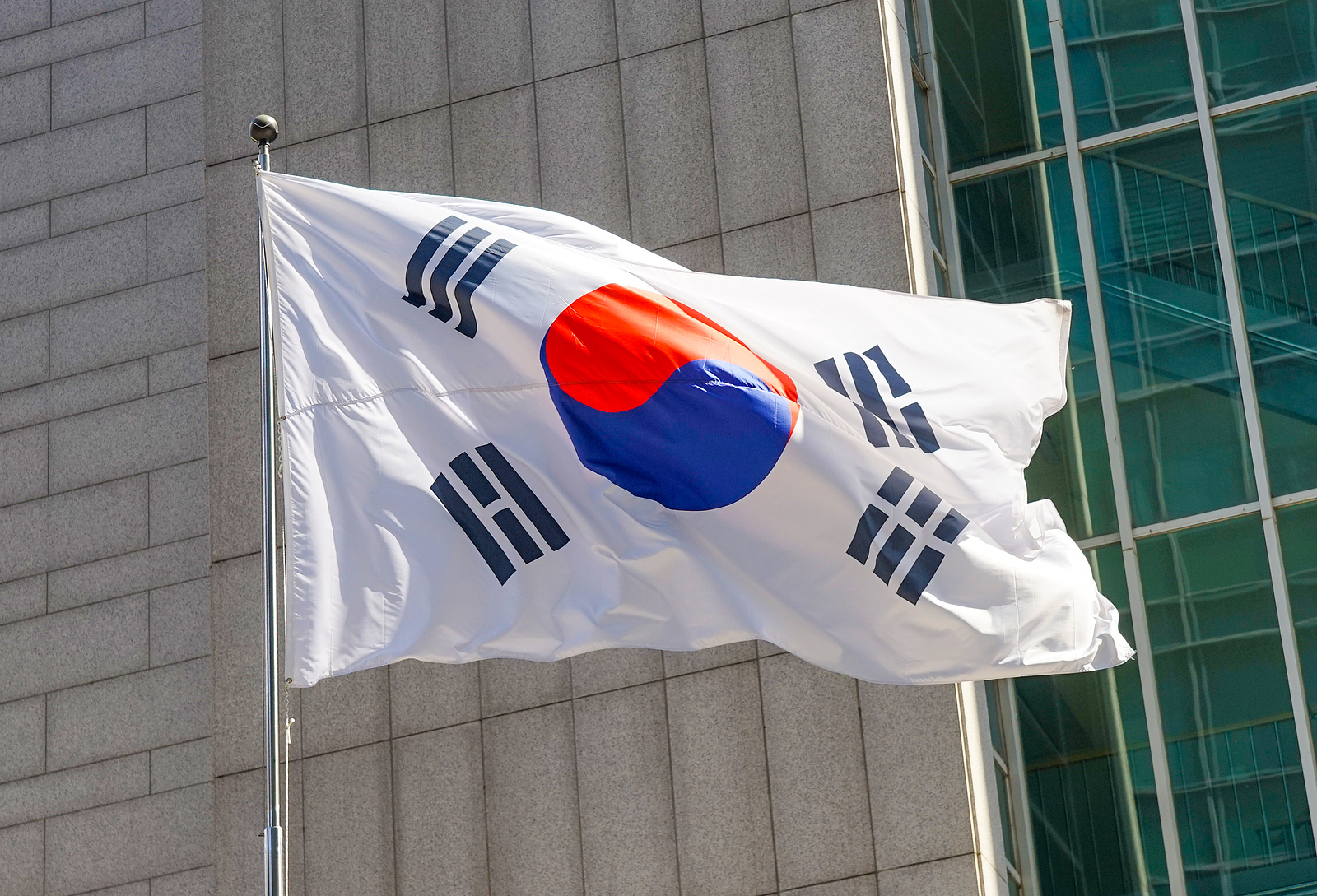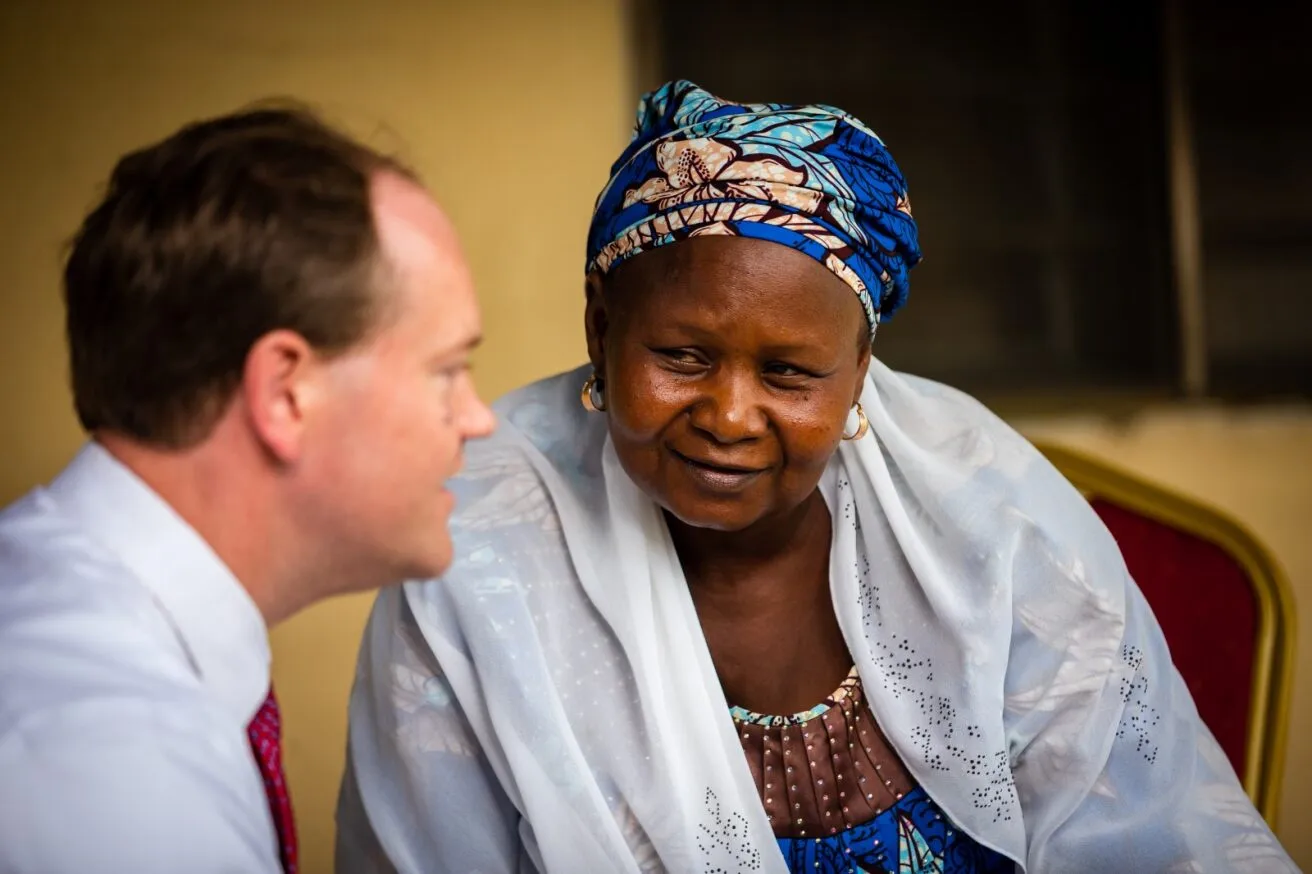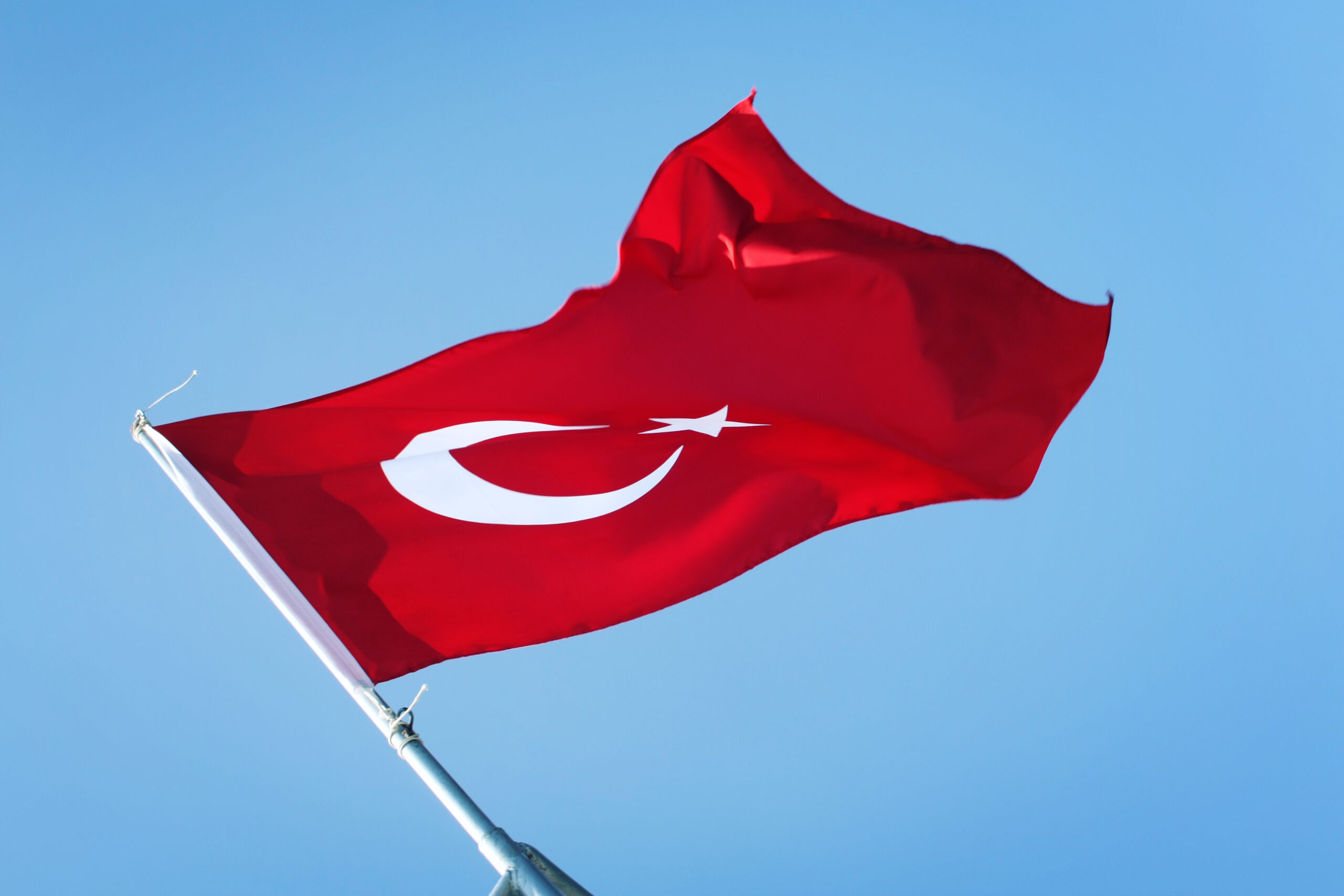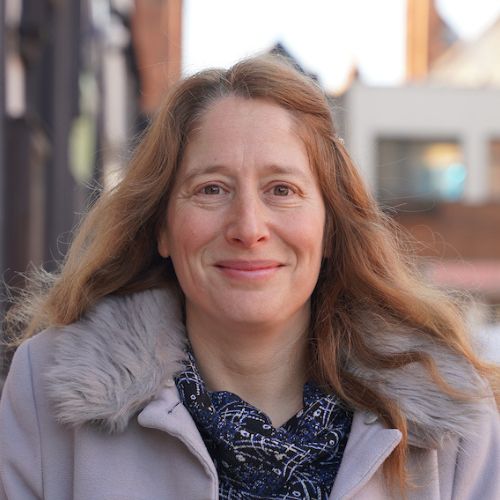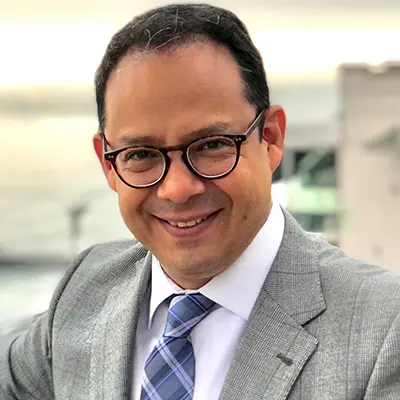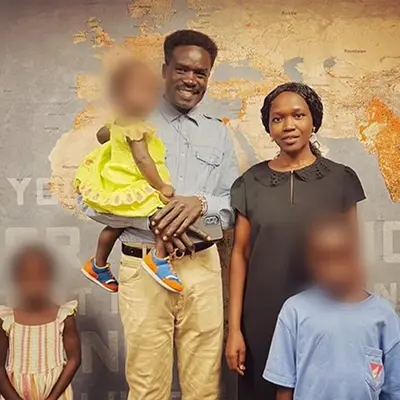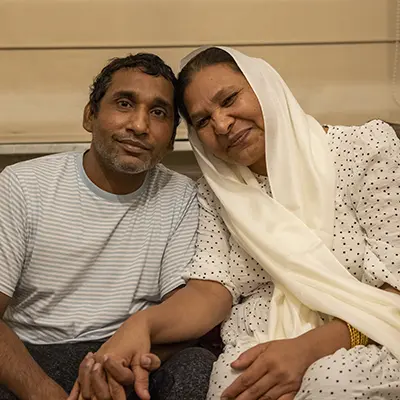Track athlete Chelsea Mitchell is undertaking a lawsuit against sporting authorities after having lost opportunities and accolades to male competitors
Continue readingNo right to same-sex marriage—Korean Supreme Court to hear case with potential to redefine marriage
Supreme Court of the Republic of Korea to hear case to determine if a same-sex partner can be registered as a “dependent spouse” under Korea’s National Health Insurance Service
Continue readingIreland’s hate speech law could “censor the entire internet”, warns Michael Shellenberger
- Bestselling author & journalist warns Irish parliamentarians against “elite panic” shutting down public discourse
- New polling shows 1 in 4 Irish already feel they can’t speak openly in the pub
- “Irish Free Speech Summit”, supported by ADF International, highlights leading public voices challenging government censorship

DUBLIN (27th June 2024) – Global voices have united in concern about the “hate speech” bill pending before Irish parliament, as 1 in 4 Irish say they are worried about the erosion of free speech.
Speaking at the Irish parliament this month, “Twitter Files” journalist Michael Shellenberger stated clearly that “there is no hate crisis in Ireland” and that the case for censorship was brought about by “elite panic” trying to stifle open conversation and discourse among the Irish people.
The bill would make it an offence to possess (for distribution) material that could lead to “hatred” in Ireland, with punishment of up to 5 years in prison.
The bill would also impact the right to share views on social media across much of the world, with directors and executives of social media platforms with international HQs in Ireland (X, Facebook, and more) held accountable to the Irish government if found to be platforming undefined “hate speech”.
"The world is watching Ireland. As the home of various international social media headquarters, the bill would have a global impact on what we can all discuss online."
- Michael Shellenberger, "Twitter Files" journalist & author
“The world is watching Ireland. The censorial “hate speech bill”, if passed, would not only shut down conversation nationally – as the home of various international social media headquarters, it would have a global impact on what we can all discuss online.
“A sweeping ban on undefined “hate” gives authorities the power to determine which viewpoints are acceptable to voice. World history warns us that such power can be easily abused,” said Michael Shellenberger, international bestselling author and journalist behind the “Twitter Files”.
Far-reaching consequences
On the same day, giving the keynote address at the Ireland Free Speech Summit, which sold out amongst members of the public, Shellenberger suggested the goal of the bill may be to “censor the entire internet”.
You are currently viewing a placeholder content from YouTube. To access the actual content, click the button below. Please note that doing so will share data with third-party providers.
More InformationThe bill offers no clear definition of what “hate” entails. Experts warn this could pave the way for the criminal prosecution of a wide range of expression considered unfavorable by authorities.
The bill would further make refusal to give a password to an electronic device a crime, which would allow authorities to search and possibly find materials that are “hateful”.
1 in 4 Irish concerned about right to free speech being eroded
New national polling commissioned by ADF International reveals a deep-seated concern amongst the Irish for the erosion of free speech, with a quarter revealing they already feel restricted in expressing their views and opinions in social settings like a pub, or in their place of work or study.
In the survey, conducted by Whitestone Insight*, 90% confirmed that free speech was “very important” to them – while the Irish parliament debates new and wide-ranging “hate speech” legislation, with egregious implications for the basic human right to free speech.
“The proposed “hate speech” legislation would be one of the worst examples of censorship in the modern West. The bill purports to stamp out ‘hate speech,’ but fails to define what ‘hate’” is – allowing authorities to censor any speech the state opposes.
That’s why voices from around the world are speaking up for the right to debate and discuss ideas – here in Ireland, and everywhere,” said Lorcan Price, Irish Barrister and Legal Counsel for ADF International.
Global voices speak out against censorship
At the 2024 Free Speech Summit in Dublin on 18th June, international free speech champions gathered with politicians to highlight the issues at stake under the bill.
You are currently viewing a placeholder content from YouTube. To access the actual content, click the button below. Please note that doing so will share data with third-party providers.
More Information“Father Ted” screenwriter Graham Linehan was among the famous faces gathered, challenging attempts to censor Ireland:
“We’re all coming together with different viewpoints, beliefs, and perspectives – but we agree on one thing. We should be allowed to freely discuss and debate ideas in Ireland. Our free speech must not be curtailed by a censorial government. It’s essential that the parliament consider the draconian impact that the hate speech bill could have on Irish society – and keep the public square open for all,” said Graham Linehan, screenwriter of “Father Ted”, who is billed to speak at the Summit.
Independent Senators Rónán Mullen and Sharon Keogan spoke out against the bill, with Mullen highlighting that thie bill is “far too vague”:
“When it comes to democracy, I believe in it. When it comes to the right to test each other’s ideas, I believe in it. And we can’t do that if we’re operating under the chilling fear of giving offence to somebody who wraps that up as hatred, claims that it’s against the law, attacks you as a mob online, causes social media companies to take down your stuff so that you’ve failed to communicate before you even begin to try…If nobody was ever prosecuted under this law, the process itself would become the punishment,” said Mullen in his address.
Also speaking up at the event were cleric and broadcaster Fr Calvin Robinson; Cambridge academic Dr. James Orr; Irish journalist Laura Perrins; Philosophy Professor Gerard Casey; feminist campaigner Laoise de Brún; GB News host Andrew Doyle; psychotherapist and Director of Genspect, Stella O’Malley; and international bestselling author Andy Ngo.
Speaking to censorship within the gender debate specifically, Genspect director and psychotherapist Stella O’Malley said:
“I am finding the gender world increasingly hardline, and there is a lack of understanding about the importance of free speech, which is a cornerstone and a fundamental to a civilisation. We need to be able to speak about this freely rather than stumbling over what is the fashionable phrase to use right now.”
For more information on the Ireland Free Speech Summit, click here.
*Methodology note: Whitestone Insight surveyed 1,027 Republic of Ireland adults online from 15th-20th March 2024. Whitestone Insight is a member of the British Polling Council and abides by its rules. Full tables are available at whitestoneinsight.com.
“Don’t tell your parents”: Parents of Austrian primary school students subjected to radical “sexuality education” seek justice
- Teacher in Austria forced children to partake in disturbing “instruction” following WHO-Standards for sexuality education in Europe
- Students reported nightmares following the classes; Mother states, “Our daughter was robbed of her childhood”; ADF International backs the parents’ case

“Our daughter was robbed of her childhood, damaged, and disturbed. It is unacceptable that primary school children are being subjected to radically inappropriate content and that protective barriers against abuse are falling."
- one of the affected mothers
Making matters worse, the Upper Austrian Directorate of Education failed to respond to the parents’ complaints, once made aware of the situation. The parents’ case is based on the fact that not only were they not informed by the teacher as to the nature of her “courses,” but also they were met with a lack of transparency on the part of the Directorate. The Directorate has discontinued disciplinary proceedings against the teacher, a significant development that the parents discovered only from media reports.
Comprehensive Sexuality Education: A Global Agenda
Felix Böllmann, Director of European Advocacy for ADF International, states: “What happened to these Austrian children demonstrates the catastrophic implications of an agenda that seeks to indoctrinate children outside of the control of their parents.”
The radical indoctrination of children through “sexuality education” curricula is a global problem. The World Health Organization (WHO), UNESCO, and other actors within the United Nations system have dedicated enormous resources to the international promotion of so-called “comprehensive sexuality education” (CSE) to children without parental consent. CSE guidelines are rife with examples of the extreme sexually-explicit, ‘information’ children are to be taught from a very young age under the guise of “empowering” them.
Böllmann continues: “Austria guarantees parental rights, recognising that parents are best positioned to protect their children, and these rights are likewise enshrined in international law.
Parents should not have to fear the worst when they send their children off to school. No parent should have to worry that their child will be subjected to deeply problematic images and ‘information’ at the hands of their teacher.
That is why we are pushing back against the surreptitious importation of this radical and explicit content–in this school, for the benefit of these students and their parents. But also for other children and parents who may not yet be aware of the materials being used in schools across Europe.”
The ideology behind “comprehensive sexuality education” assumes that children should be sexualised from the first moments of their life. For example, Uwe Sielert, a proponent of extreme sexual pedagogy, worked together with the WHO Regional Office for Europe to develop the “Standards for Sexuality Education in Europe” in 2010. These standards promote an aberrant vision of sexuality education for children, far removed from basic sexual health information, in direct violation of the guaranteed rights of parents to raise and educate their children in line with their own worldview and free from harm. They lay the groundwork for cases such as that of these Austrian children who have been subjected to such content at the hands of their teacher.
“Parents have a great responsibility to protect their children from harm, but they can’t do that if they don’t know what is happening behind classroom doors. And children have the right to be protected from harm. Exposing children to radical ‘sexuality education’ thus violates the rights of both children and their parents,” Böllmann says.
Comprehensive Sexuality Education: A Global Agenda
At issue in this case is the compulsory participation of young students in classes containing graphic sexual content in the name of “diversity” education, without the knowledge or consent of their parents, ultimately made possible by European-wide “comprehensive sexuality education” standards.
Students’ testimony details the disturbing content to which they were subjected, including how their teacher made them watch a graphic film and repeatedly described sexual practices in detail with words and pictures, even when the children objected. After the lessons, the children reported being “disturbed” and were visibly unable to process what they were shown and why.
“Our daughter was completely distraught when she came home from class. The content was in no way age-appropriate sex education, but rather deeply ideological content aimed at sexualising our children,” says the mother of one of the students.
ADF International is backing the legal defense of these parents to hold both the school and Austrian authorities accountable for the failure to respect their parental rights.
“ADF International is committed to supporting these parents in the defence of their basic human rights. The school must be held responsible for its duty to uphold the rights of parents to oversee the education of their children. The same applies to the duty of Austrian authorities to abide by the country’s international law commitments on parental rights,” Böllmann concludes.
Olympian to United Nations: Eroding female categories is ‘the sporting crime of the 21st Century’
Olympic swimmer Sharron Davies, who was cheated out of gold in 1980s drug-enhancement scandal, appeals to UN to keep women’s sports fair – and female-only
Continue readingWhy Nigeria is the Most Dangerous Country in the World for Christians
Sharia law in the north, blasphemy laws, and the ongoing threat from Boko Haram enable the rampant persecution of Christians

Legal Counsel for Global Religious Freedom with ADF International
UPDATE 19 December 2024: Following a two-and-a-half-year legal ordeal, a judge in Bauchi State, Nigeria, acquitted Rhoda Jatau of “blasphemy” charges. If convicted, Rhoda faced up to five years in prison. She spent 19 months in prison before being released on bail for allegedly sharing a blasphemous video that condemned the lynching of Christian college student Deborah Emmanuel Yakubu.
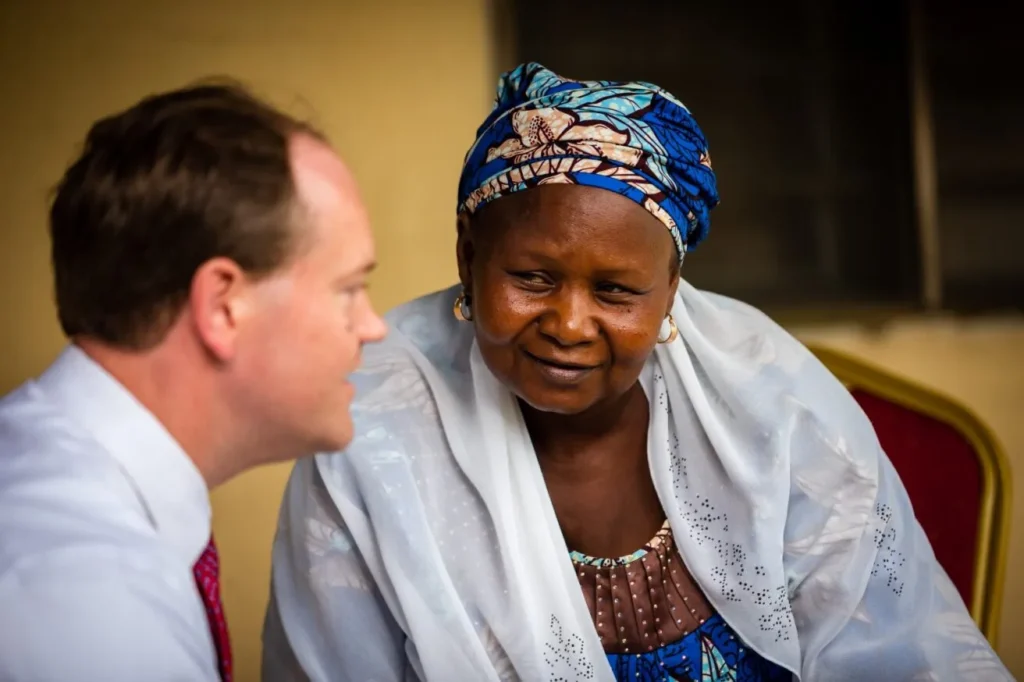
The gospels tell us that Christians should expect to be persecuted for their faith. However, many people are surprised when they hear about the large amount of persecution facing Christians around the world today. Over 365 million Christians experienced “high levels of persecution and discrimination” worldwide in 2023.
But one country in particular, Nigeria, is the most dangerous country in the world for Christians. In 2022, roughly 5,000 Christians were murdered for their faith – more than the number killed in all other countries combined. For 2023, one estimate put the number of Christians targeted and killed in Nigeria at over 7,000.
The severe Christian persecution in Nigeria, particularly in the northern regions, makes it the most dangerous country in the world for Christians. I recently travelled to Nigeria and saw the effects of persecution firsthand. Let me share them with you:
Countering this Christian Persecution
Thankfully, ADF International works to stop this relentless persecution of Christians in Nigeria. We work with local allied lawyers to oppose the country’s egregious blasphemy laws and get Christians out of Islamic Sharia courts. We help Christian converts escape from violence and threats and protect Christian ministries targeted for their work.
And we work at the highest levels of governments around the world to put pressure on Nigeria to stop persecuting Christians. For example, this includes advocating for Nigeria’s placement on the United States government watchlist of the worst countries in the world for religious freedom violations.
I’ve met with the victims of Christian persecution and religious freedom violations in Nigeria. They have great faith in the face of such hardship. I recently travelled to Nigeria and saw the effects of persecution firsthand.
The Persecution of Christians in Nigeria is Systemic
Because Nigeria is the most dangerous country in the world for Christians, the persecuted face targeted violence and death from terrorist groups like Boko Haram and Muslim Fulani militias. Terrorist groups like these are responsible for thousands of killed Christians every year. Christian villages are burned, and villagers are left with mass graves, many orphaned children, and scars from attacks. I witnessed this destruction with my own eyes when I visited Nigeria.
Pastors and churches are particularly targeted, even on holy days like Christmas and Pentecost.
Northern Nigeria is also one of only seven places in the world where you can get the death penalty for alleged blasphemy. Northern Nigeria’s blasphemy laws are contained in its Islamic Sharia law, and they call for death for people who allegedly “insult” Islam. And so, these laws harm both Christians and minority Muslims and lead to horrifying instances of mob violence. Many Nigerian Christians have been killed by these mobs based on blasphemy accusations because they loved Christ.
Even those who condemn this mob violence face blasphemy trials, like Christian mother Rhoda Jatau. She was similarly accused of blasphemy, and a mob ransacked her neighborhood.

Why Nigeria is the Most Dangerous Country for Christians
Christians in Nigeria, particularly in the northern half of the country, face some of the most difficult circumstances for Christians in the world. Northern Nigeria is majority Muslim and increasing Islamic extremism from terrorist groups like Boko Haram and other militants like Muslim Fulani militias have led to greater Christian persecution. Boko Haram explicitly wants to murder, kidnap, and subjugate Christians in Nigeria.
Christian converts face an especially hard time because their family, friends, and community will often threaten and attack them for converting. I’ve met these converts who fled their homelands for safety.
Churches face discrimination, false accusations, and destruction. In fact, one evangelist named Daniel Kefee was charged with kidnapping for helping a young Christian convert woman find safety. With our support, local allied lawyers were able to free him and win his case.
The Spread of Sharia Law Throughout the North
Islamic Sharia law has also spread throughout the northern Nigerian states, leading to increasing persecution of Christians. Sharia law inspires hostility and mob violence against Christians in Nigeria. And even though Christians are not supposed to be subject to Sharia law, they are regularly hauled before Sharia courts on false accusations. Obtaining lawyers for these Christians in Nigeria is necessary for them to be saved from the application of Sharia law and its courts.
The U.S. Commission on International Religious Freedom (USCIRF) has long recommended that Nigeria be placed on the U.S. government’s watch list of the worst countries in the world for religious freedom. We strongly agree with this recommendation. But the U.S. State Department under the Biden administration removed Nigeria from the government watch list in 2021 without any clear reason.
The decision was outrageous. Certainly, the most dangerous country in the world for Christians should be recognized and designated that way by the U.S. government. These long-suffering Nigerian Christians deserve to have the international community on their side.
Overturning Blasphemy Laws to Remedy Christian Persecution
The blasphemy laws in Nigeria especially contribute to the persecution of Christians and other religious minorities. Here are two examples of which my Global Religious Freedom team works on today:
Yahaya Sharif-Aminu: Sufi Muslim Musician
We’re supporting the case of one young man, Yahaya Sharif-Aminu, who is a Sufi Muslim musician charged with blasphemy for sharing song lyrics over WhatsApp. A mob burnt down his home, and he was convicted and sentenced to death in 2020 without a lawyer.
Thankfully, his conviction was overturned, but he was sent back to the Sharia Court to be retried under the same death penalty blasphemy law. We support his appeal to the Supreme Court of Nigeria to overturn the egregious blasphemy law. When I spoke to Yahaya in prison, one of his greatest pains was not being able to see his parents since his arrest.
Rhoda Jatau: Christian Mother Finally Acquitted
Rhoda was put in prison for 19 months during a trial where she was charged with blasphemy for allegedly sending a WhatsApp message condemning mob violence against Christians. She could only occasionally speak with a lawyer and see her family while imprisoned.
Thankfully, with our support and international advocacy, she was released on bail. In December 2024, following a two-and-a-half-year legal ordeal, a judge in Bauchi State, Nigeria, acquitted Rhoda Jatau of “blasphemy” charges. If convicted, Rhoda faced up to five years in prison. I met and spoke with Rhoda, and the anguish of being separated from her family while imprisoned was very difficult. Remarkably, her faith in Christ has been strengthened.
Conclusion: Relieving the Persecution of Christians in Nigeria Requires a Global Effort
Christian persecution won’t stop in Nigeria unless we all take a stand against it. That’s why we raise the alarm over the persecution of Christians in Nigeria. We advocate at the highest levels of government for the recognition of this persecution. We support allied lawyers who take cases to protect these persecuted Christians and end blasphemy laws.
Because of the danger here facing Christians, the persecuted face targeted violence and death from terrorist groups like Boko Haram and Muslim Fulani militias.
Victims living in the most dangerous country in the world for Christians have heartbreaking stories. But their faith is inspiring. So, we should make every effort to stand with them and stop the persecution of Christians in Nigeria.
One in four Irish worried about losing right to free speech
- New polling reveals a quarter of Irish people feel they can’t speak freely in social settings, like in a pub
- Global free speech champions to take the stage in Dublin at “Ireland Free Speech Summit”, voicing concerns about proposed “hate speech” bill

DUBLIN (18th June 2024) – New national polling commissioned by ADF International reveals a deep-seated concern amongst the Irish for the erosion of free speech, with a quarter revealing they already feel restricted in expressing their views and opinions in social settings like a pub, or in their place of work or study.
In the survey, conducted by Whitestone Insight*, 90% confirmed that free speech was “very important” to them – while the Irish parliament debates new and wide-ranging “hate speech” legislation, with egregious implications for the basic human right to free speech.
“The proposed “hate speech” legislation would be one of the worst examples of censorship in the modern West. The bill proports to stamp out ‘hate speech,’ but fails to define what ‘hate’” is – allowing authorities to censor any speech the state opposes.
That’s why voices from around the world are arriving in Dublin this week to speak up for the right to debate and discuss ideas – here, and everywhere,” said Lorcan Price, Irish Barrister and Legal Counsel for ADF International, and speaker about the implications of the bill at the Ireland Free Speech Summit.
The most censorial proposal in the West
The proposed Hate Speech Bill would make it an offence to possess (for distribution) material that could lead to hatred in Ireland, with punishment of up to 5 years in prison. It would further make refusal to give a password to an electronic device a crime, which would allow authorities to search and possibly find materials that are “hateful”.
At the 2024 Free Speech Summit scheduled to take place in Dublin on 18th June, international free speech champions will gather with politicians to highlight the issues at stake under the bill.
“The world is watching Ireland. The censorial “hate speech bill”, if passed, would not only shut down conversation nationally – as the home of various international social media headquarters, it would have a worldwide impact on what we can all discuss online, throughout the world.
“A sweeping ban on undefined “hate” gives authorities the power to determine which viewpoints are acceptable to voice. History warns us that such power can be easily abused. The Summit is drawing together voices from across the globe to stand up for the rights of people everywhere to continue to have free, fair and open conversation,” said Michael Shellenberger, international bestselling author and journalist, who is billed to speak at the Summit.
“The world is watching Ireland. The censorial 'hate speech bill', if passed, would not only shut down conversation nationally...it would have a worldwide impact on what we can all discuss online."
- Michael Shellenberger, international journalist & author, and speaker at the Dublin Free Speech Summit
Organised by Free Speech Ireland with support from ADF International, the event will bring together Irish and international free speech activists to discuss the importance of free expression in Ireland – and further afield.
Independent Senators Rónán Mullen and Sharon Keogan are expected to take the stage, as well as leading academics including Cambridge Associate Professor Dr. James Orr.
Also on the bill are cleric and broadcaster Fr Calvin Robinson; feminist campaigner Laoise de Brún; psychotherapist and Director of GenSpect, Stella O’Malley; international bestselling authors Michael Shellenberger and Andy Ngo; and “Father Ted” Screenwriter Graham Linehan.
“The Summit is the very epitome of why we need free speech. We’re all coming together with different viewpoints, beliefs, and perspectives – but we agree on one thing. We should be allowed to freely discuss and debate ideas in Ireland. Our free speech must not be curtailed by a censorial government. It’s essential that the parliament consider the draconian impact that the hate speech bill could have on Irish society – and keep the public square open for all,” said Graham Linehan, screenwriter of “Father Ted”, who is billed to speak at the Summit.
For more information on the Ireland Free Speech Summit, click here.
*Methodology note: Whitestone Insight surveyed 1,027 Republic of Ireland adults online from 15th-20th March 2024. Whitestone Insight is a member of the British Polling Council and abides by its rules. Full tables are available at whitestoneinsight.com.
Images for free use in print or online in relation to this story only
Pictured: Dublin Free Speech Summit flyer; Lorcan Price, ADF International
Türkiye’s Highest Court Rules in Support of Government’s Expulsion of Nine Foreign Christians for Alleged “Missionary Activities”
Court in Türkiye issues decision supporting the government on cases banning foreign Christian workers from the country under “N-82” codes designating them “risks to national security”
Continue readingCountries cannot be forced to introduce assisted suicide, rules Europe’s top human rights court
- European Court of Human Rights rules in favour of Hungary’s right to uphold legal protections prohibiting assisted suicide; rejects challenge brought by Hungarian national seeking to end his life due to progressive neurodegenerative condition.
- Ruling affirms the right of 46 member states of Council of Europe to maintain laws protecting life.
- ADF International intervened in case, arguing that states have an obligation to protect the right to life, there is no “right to die”.
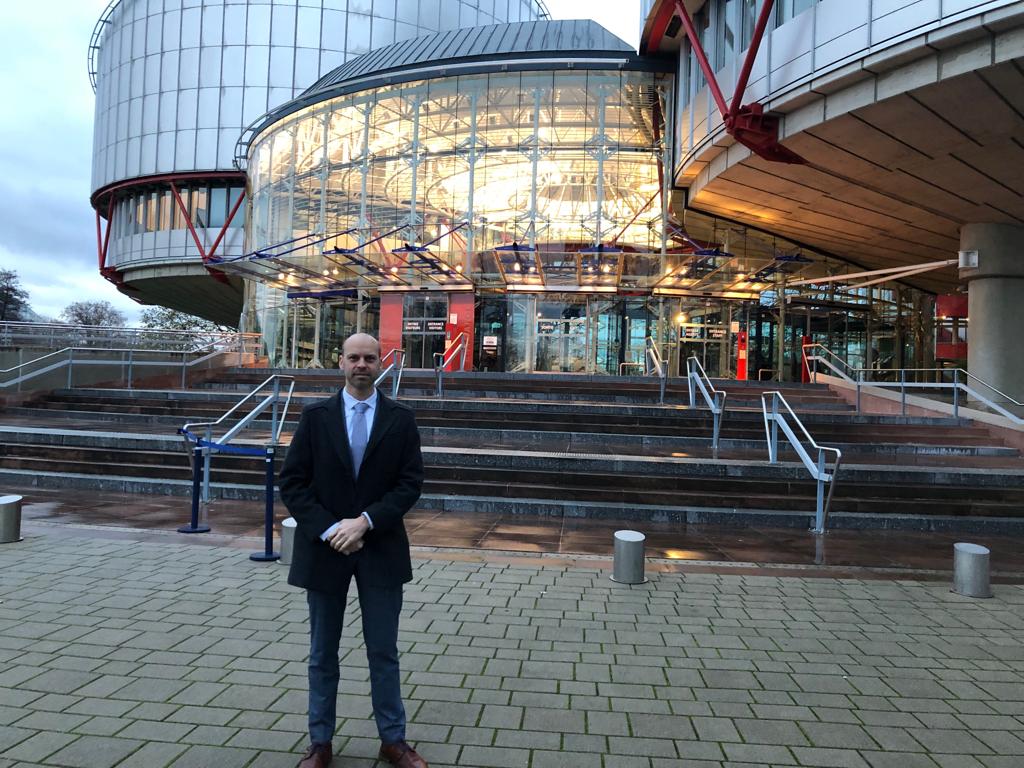
Strasbourg (13 June 2024) – The European Court of Human Rights has upheld the right to life by striking down a challenge seeking to permit assisted suicide in Hungary. Hungarian national Dániel Karsai, diagnosed with a progressive neurodegenerative condition, had sought to undermine Hungary’s legal protections for life by challenging its ban on assisted suicide.
“Instead of abandoning our most vulnerable citizens, society should do all it can to provide the best standards of care."
- Jean-Paul Van De Walle, Legal Counsel and leading lawyer on the case for ADF International
In its decision, the Court affirmed that prohibition of assisted suicide is in line with the country’s obligations under international law to protect life. Additionally, as the court pointed out, “the majority of the Council of Europe’s member States continue to prohibit” euthanasia and related practices (§ 165).
“We applaud today’s decision by the European Court of Human Rights, which upholds Hungary’s essential human rights protections. Although we deeply empathize with Mr. Karsai’s condition and support his right to receive the best care and relief possible, it is clear from other jurisdictions that a right to die quickly becomes a duty to die. Instead of abandoning our most vulnerable citizens, society should do all it can to provide the best standards of care,” said Jean-Paul Van De Walle, Legal Counsel for ADF International.
ADF International, along with UK-based NGO Care Not Killing, intervened in the case of Karsai v. Hungary, arguing that Hungary’s legal prohibition on assisted suicide must be upheld in line with the obligation under the European Convention on Human Rights (Article 2) to protect the right to life.
Court: States are not required “to provide access” to assisted suicide
In its submission to the Court, ADF International highlighted the inevitable abuses that ensue when legal protections for the right to life are eradicated. The brief explained: “Removing such provisions from law creates a dangerous scenario where pressure is placed on vulnerable people to end their lives in fear (whether or not justified) of being a burden upon relatives, carers, or a state that is short of resources.”
The court held, as submitted by ADF International, that there is “no basis for concluding that the member States are thereby advised, let alone required, to provide access” to assisted suicide. (§ 143)
Seeking to legalize assisted suicide
Karsai, 46, wished to resort to assisted suicide before his physical condition further deteriorates. Hungary protects the lives of its citizens, including the vulnerable, by criminalizing the act of assisting somebody to end their life, whether the act is committed in Hungary or abroad. Mr. Karsai maintained that if he were to pursue assisted suicide outside of Hungary, the Hungarian Criminal Code would apply to anyone assisting him.
The ruling in Karsai v. Hungary confirms the 2002 decision made by the ECHR in Pretty v. UK, which involved a woman with ALS. Back then, the Court similarly ruled that the British ban on assisted suicide did not violate the Convention and was designed to prevent abuse of the vulnerable.
In today’s decision, the Court noted that “it is part of the human condition that medical science will probably never be capable of eliminating all aspects of the suffering of individuals who are terminally ill” (§ 158). However, it emphasized that “this heightened state of vulnerability warrants a fundamentally humane approach by the authorities to the management of these situations, an approach which must necessarily include palliative care that is guided by compassion and high medical standards” (ibid.).
Legalisation leads to abuses
“Worldwide, only a tiny minority of countries allow assisted suicide. Wherever the practice is allowed, legal ‘safeguards’ are insufficient to prevent abuses, proving most harmful to vulnerable members of society, including the elderly, the disabled, and those suffering from mental illness or depression. Suicide is something society rightly considers a tragedy to be prevented and the same must apply to assisted suicide. Care, not killing must be the goal we all strive towards,” Van De Walle explained.
ADF International argued in its brief that there is no so-called “right to die” but, in fact, a clear right to life. This position, in line with both European and international human rights law, underscores the dangers that would ensue from forcing Hungary to allow assisted suicide, highlighting that the intentional taking of human life can never be safe.
The European Court of Human Rights also recognised these dangers in the October 2022 ruling in Mortier v. Belgium, in which the the Court found that Belgium violated the right to life in the circumstances surrounding the euthanasia of Godelieva De Troyer.
As argued in ADF International’s intervention: “Despite alleged ‘safeguards’ and a ‘strict’ legal framework, young adults are euthanised because of ‘incurable depression,’ elderly people because of symptoms related to ageing, prisoners because of lack of access to appropriate mental health care or because of psychological suffering, twins because of becoming blind – to mention only some examples, among many others.”
Euthanasia and assisted suicide widely prohibited and rejected as “unethical”
Of the 46 Member States of the Council of Europe, only six have legalized assisted suicide. Legislators in the vast majority of countries have rejected the practice. The World Medical Association consistently and categorically has rejected the practice of euthanasia and assisted suicide as unethical. Countries that have legalized euthanasia now allow the intentional killing of children, those who are physically healthy, and those who have not given their consent.
In Resolution 1859 (2012), the Parliamentary Assembly of the Council of Europe stated unequivocally that: “Euthanasia, in the sense of the intentional killing by act or omission of a dependent human being for his or her alleged benefit, must always be prohibited.”
“Once we as a society open the doors to intentional killing, there is no logical stopping point. How do we distinguish between the person we talk down from the bridge and the person we let die at the hands of their doctor? The state is obligated to protect the fundamental value of human life. We should not set in motion legal changes that undermine this obligation to the detriment of all of society,” noted Van De Walle.
Following forced closure of Catholic Teachers College, Bishops sue Bolivian state, take case to international human rights enforcer
Bolivian Catholic Conference of Bishops challenges government’s forced closure of their teachers college.
Continue reading



